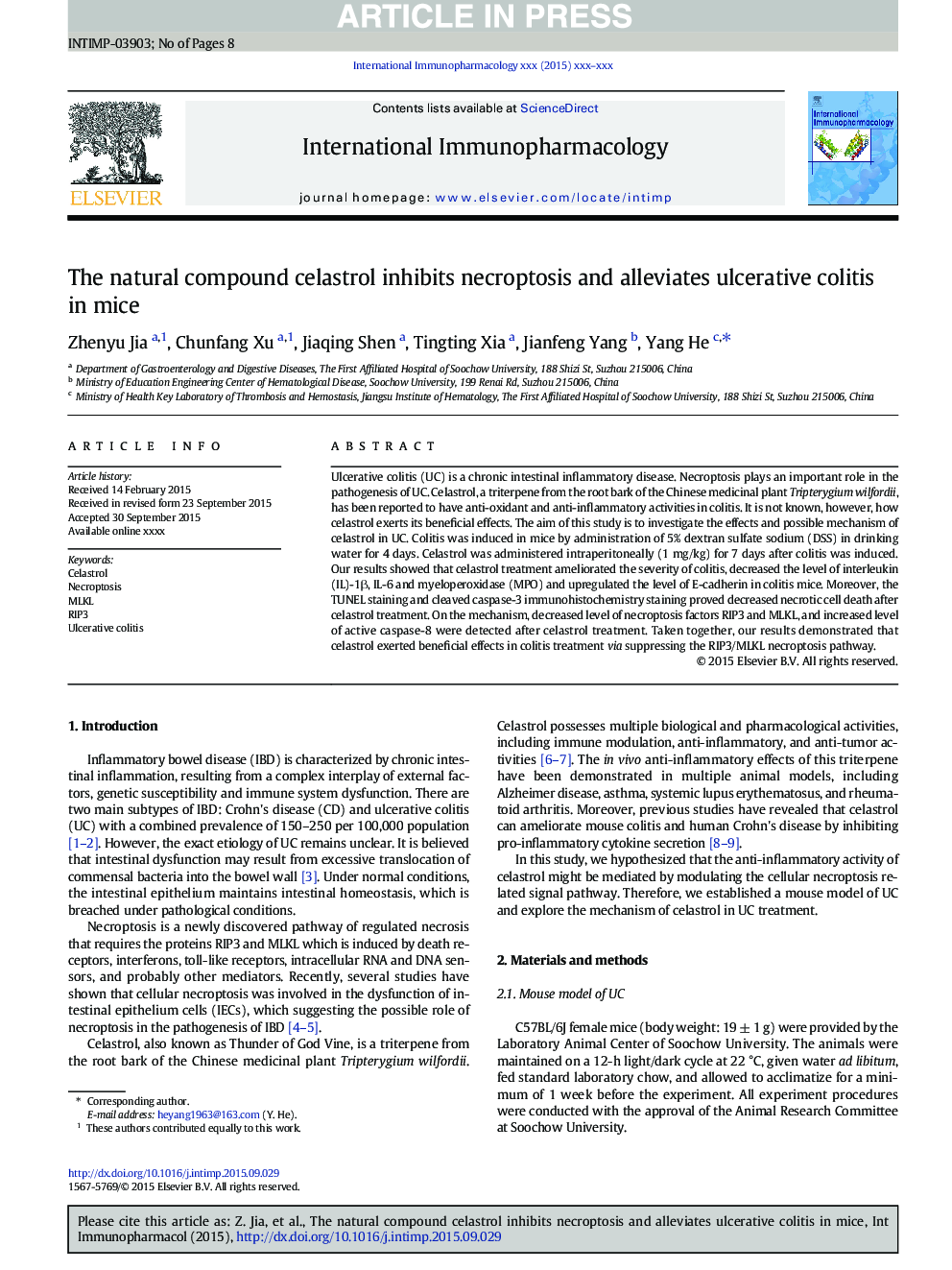| Article ID | Journal | Published Year | Pages | File Type |
|---|---|---|---|---|
| 5832199 | International Immunopharmacology | 2015 | 8 Pages |
Abstract
Ulcerative colitis (UC) is a chronic intestinal inflammatory disease. Necroptosis plays an important role in the pathogenesis of UC. Celastrol, a triterpene from the root bark of the Chinese medicinal plant Tripterygium wilfordii, has been reported to have anti-oxidant and anti-inflammatory activities in colitis. It is not known, however, how celastrol exerts its beneficial effects. The aim of this study is to investigate the effects and possible mechanism of celastrol in UC. Colitis was induced in mice by administration of 5% dextran sulfate sodium (DSS) in drinking water for 4 days. Celastrol was administered intraperitoneally (1 mg/kg) for 7 days after colitis was induced. Our results showed that celastrol treatment ameliorated the severity of colitis, decreased the level of interleukin (IL)-1β, IL-6 and myeloperoxidase (MPO) and upregulated the level of E-cadherin in colitis mice. Moreover, the TUNEL staining and cleaved caspase-3 immunohistochemistry staining proved decreased necrotic cell death after celastrol treatment. On the mechanism, decreased level of necroptosis factors RIP3 and MLKL, and increased level of active caspase-8 were detected after celastrol treatment. Taken together, our results demonstrated that celastrol exerted beneficial effects in colitis treatment via suppressing the RIP3/MLKL necroptosis pathway.
Related Topics
Life Sciences
Immunology and Microbiology
Immunology
Authors
Zhenyu Jia, Chunfang Xu, Jiaqing Shen, Tingting Xia, Jianfeng Yang, Yang He,
